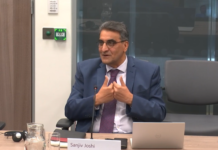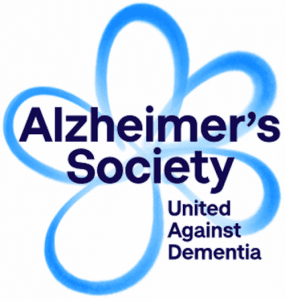Written by Alzheimer’s Society Cymru’s Country Director, Sue Phelps.
It’s happened to all of us. You can’t put a name to a face. You forget where you put your keys. You can’t remember where you parked the car. Most of the time, these slips are a nuisance rather than something more serious.
Everybody forgets things from time to time. But if you are noticing problems with your memory, or a loved one’s memory, and these problems are seemingly getting worse and affecting your everyday life, it’s important to speak to a GP.
Memory problems do not always mean dementia. They can also be a sign of other conditions including depression, infections and vitamin deficiencies, which is another reason to get them checked out.
If you are diagnosed with dementia, Alzheimer’s Society Cymru can help get the right support in place for you or your loved one. Our personalised support service, Dementia Connect, will connect you to a whole range of support, by phone, online, and face to face when safe to do so. It’s in huge part thanks to players of People’s Postcode Lottery, who have raised £2.3 million for Alzheimer’s Society, that the charity can continue transforming the lives of people affected by dementia.
Dementia advisers provide practical and emotional support to people affected by dementia. Usually community-based, dementia advisers support people with more complex dementia needs by visiting them face to face and developing a tailored plan of support. Since March 2020, all Alzheimer’s Society Cymru face to face and group services have been suspended due to coronavirus but we’ve adapted our services so they can be delivered virtually or over the phone.
Over the past 10 months, our dementia advisers have been on the frontline of the charity’s coronavirus response.
Dementia advisers can offer post diagnosis support to help people with dementia have better access to health, their community, housing and care services, as well as providing crucial emotional support so people can take control of their condition and live the life they choose.
Everyone’s experience of a diagnosis of dementia is different. Sadness, fear and a sense of loss or disbelief are all common reactions. It may sound strange, but some people also feel relief as a result of having an explanation for the changes they have been experiencing. Once you have a diagnosis, you can deal with it and do something about it.
Although there is no known cure, it is possible to live well with dementia and we can provide support to you and your family through Dementia Connect. Your doctor may prescribe drugs that can lessen symptoms for a while. Dementia can be treated with or without drugs, by looking after other medical conditions and making changes to your lifestyle. With a combination of these, it is possible to live well with dementia for many years.
The non-drug treatments that are available, and how to be referred for them, can vary depending where you live. Your GP or memory service should give you details of these, or you can contact Alzheimer’s Society Cymru.
Alzheimer’s Society Cymru’s information and advice will help you understand what steps to take. Visit www.alzheimers.org.uk/memoryproblems to find out more.”
Alzheimer’s Society Cymru is here for anyone affected by dementia through our Dementia Connect support line on 0333 150 3456 (or call the Wales support line on 0300 222 1122). Our Dementia Connect support line is open seven days a week.
If you are worried about your own or someone else’s memory, visit www.alzheimers.org.uk/memoryproblems for free support, and advice on what to do next.
Help keep news FREE for our readers
Supporting your local community newspaper/online news outlet is crucial now more than ever. If you believe in independent journalism, then consider making a valuable contribution by making a one-time or monthly donation. We operate in rural areas where providing unbiased news can be challenging. Read More About Supporting The West Wales Chronicle


























